Medication-Assisted Treatment (MAT)
A scientifically-proven treatment approach that combines medication and counseling for quicker and more effective recovery.
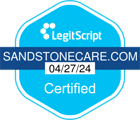
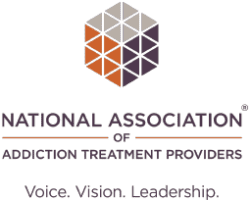
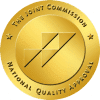


Sandstone Care utilizes MAT to help you remain substance free when entering treatment and throughout your recovery. Our program combines medication, therapy, and other treatments to support your specific needs and unique journey.
MAT involves the use of prescription drugs designed to help in:
Those who struggle with alcohol use disorder or opioid use disorder are primarily the recipients of Medication-Assisted Treatment. MAT works best when coupled with treatment programs like those offered at Sandstone Care, where a focus is put on co-occurring mental disorders in addition to drug or opioid addiction.
Throughout the recovery journey, cravings and other withdrawal symptoms that can often lead to relapse. MAT helps to manage or eliminate cravings.
The following are the signs you may benefit from MAT:
Sandstone Care provides age specific care for those who struggle with substance use, mental health, and co-occurring disorders. We have treatment centers throughout the United States.

At Sandstone Care, the goal of Medication-Assisted Treatment is to couple psychiatric care with a highly structured medication regimen to support healing from the inside out. Medications used in MAT work to control addiction within the limbic system, while other aspects of therapy support the rest of the body and mind.
While the medication prescribed through MAT can solve physical problems for a client during rehabilitation and recovery, it cannot always solve the behavioral and mental issues found at the root of addiction. It is important to remember that MAT does not work alone – clients receiving MAT should commit to all aspects of treatment in order to overcome addiction.
Therapy is key to building a new set of coping skills to help combat addiction physically and mentally. That is why Sandstone Care offers Medication-Assisted Treatment to clients at any of our program locations and treatment levels.
Many treatment centers claim to offer Medication-Assisted Treatment to clients, but only provide medication assisted detox or take a one size fits all approach to prescribing MAT.
Sandstone Care offers both Medication-Assisted Treatment and Medication-Assisted Detox to clients in need.
Known well in the medical community, MAT is a long-term maintenance therapy, coupled with intensive psychiatric treatment. While MAT is only utilized for clients with opioid or alcohol use disorder, a level of Medication-Assisted Detox is given to everyone with a dependence that enters treatment. Without the medication prescribed in MAD, opioid users that stop taking them can go through painful, flu-like withdrawal symptoms. Medication-Assisted Treatment, on the other hand, is utilized throughout the continuum of care at Sandstone Care, supporting a client’s journey to recovery. See the section below called “Medication-Assisted Treatment (MAT) at Sandstone Care” to learn how each level of care administers and monitors MAT.
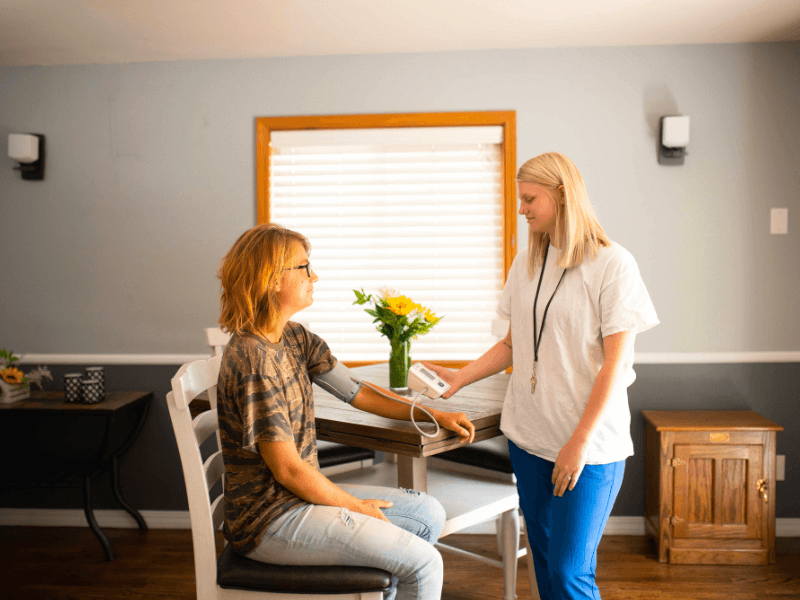
According to the CDC, alcohol use disorder is defined by periods of binge and heavy drinking along with physical dependence on alcohol, cravings, drinking more to achieve the desired effect, and experiencing withdrawal symptoms when you do not consume alcohol.
These treatments have been demonstrated to be safe and effective in combination with counseling and psychosocial support.
According to The Diagnostic and Statistical Manual of Mental Disorders, opioid use disorder is defined as a problematic pattern of opioid use leading to problems or distress, with at least two of the following occurring within a 12-month period:
These treatments have been demonstrated to be safe and effective in combination with counseling and psychosocial support. These medications either reduce the cravings or block the ability of the drug to create the “high” in the person’s brain.
A methadone clinic dispenses medications and provides support when using MAT for opioid use disorder.
Methadone clinics can be helpful if you struggle to follow your opioid treatment program without high levels of support and supervision. Unlike other addiction medicines, methadone is usually not taken home with you to take on your own.
If you use methadone for MAT, you need to go to a methadone clinic each day to get your daily dose. Since methadone activates the opioid receptors to reduce cravings, there is still a risk of misuse or abuse.
Methadone clinics ensure that you take your medication as prescribed while providing additional support during substance abuse treatment.
While going to a methadone clinic each day might be a hassle, you could benefit from peer support and the check-in with your treatment team. You can build a routine around getting up to attend the clinic before starting the rest of your day.
As you continue with your methadone treatment, you might get a referral for take-home doses. When you have more stability in your recovery and demonstrate that you can manage your addiction, take-home prescriptions can help you get back to a normal life.
The Continuum of Care
Access a full range of treatments for mental health and substance use disorders. Whether you need a safe transitional living community, inpatient care, or outpatient therapy, we have a program to help.
5-21 days of 24/7 on-site medical supervision.
Our Medically-Assisted Detox and Inpatient Center offers private rooms and 24/7 medically supervised care to support a safe recovery from drugs and alcohol, followed by comprehensive treatment that addresses your physical, psychological, emotional, and spiritual needs.
2-6 Months
Our Transitional Living Program combines the structure of treatment and group living, with the freedom of living away from home.
This level of care is for young adults (18-30) who are not quite ready to heal from home. A safe and supportive living environment integrated with a PHP or IOP level of care so you learn life skills and healthy coping mechanisms in an environment that’s set up for your success.
4 weeks of on-site day treatment.
Our Young Adult Day Treatment Program, also known as Partial Hospitalization Program (PHP), is a highly structured level of care for young adults that offers five days of robust programming a week.
Our two distinct mental health and substance use tracks help young adults to stabilize, begin to understand their mental health and/or addiction struggles, and heal from them. We strive to help our clients become more like the person they want to be without using negative coping strategies or substances to get there.
12 weeks of on-site or virtual treatment.
Our Young Adult IOP, or Intensive Outpatient Program, offers two distinct tracks to address young adult needs, each track consisting of 3-4 days of weekly programming.
In our mood disorder track, we are able to focus on mental health, depression, trauma, and anxiety. In our dual diagnosis track, we are able to support young adults with substance use and mental health challenges. Each focuses on developing positive social, academic, and vocational habits while continuing with their job or school responsibilities.
According to Dr. Montague, “To rebuild your life, you will need a supportive cohort of friends and family, along with really good trauma care and coping mechanisms. The clinical healing tools gained from treatment come through hard work and emotional support, which is exactly what Sandstone Care offers to those ready to work hard for recovery.”
The unique clinical framework at Sandstone Care addresses each aspect of life Dr. Montague mentions as keys for recovery.
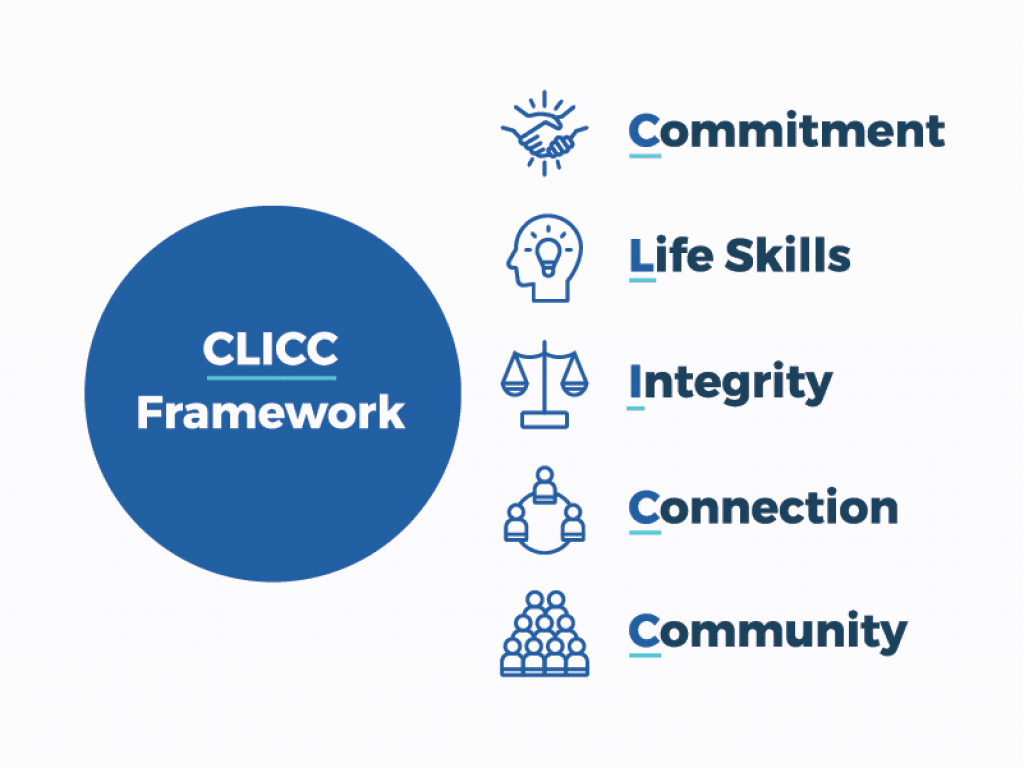
To achieve a new sustainable lifestyle, individuals and families must accept that meaningful change is vital to recovery. We believe the development of values and beliefs is the first step in providing the foundation for this change. To find a sustainable change, the individual must work with their family members and our clinical team to develop this set of values.
Our teens and twenties are years filled with opportunities to develop, but they are also a time filled with confusion and new challenges. Unfortunately, many people turn to substance use to cope with these new challenges and everyday stress. At Sandstone Care, individuals will learn coping skills and they’ll continue the process of defining who they are so they can tackle life’s challenges with confidence.
Clinicians call this experience identity formation. In academia, this process is called choosing your major. We recognize that when clients see their schoolwork and career choices as expressions of who they are, they flourish. Our goal is to help you flourish.
Individuals can discover and restore the values that their families hold dear while growing a sense of personal responsibility. With a stronger sense of integrity, clients can cultivate their own values, beliefs, and passions that will continue to keep them strong in the face of temptation.
Through group therapy, clients can develop healthy and authentic relationships that aren’t based on a desire for substance use. Group therapy is also an opportunity to re-establish relationships with family members and other loved ones. Establishing stable relationships in a safe community can positively reinforce the individual’s commitment to change.
The ultimate goal of the program is to create a new, sustainable, joyful and meaningful way of life. Sandstone Care has dedicated resources and clinical staff to help our clients identify classes, jobs, sports, and other activities that help individuals connect to vibrant and inspiring communities. These new communities are often the key to a new, healthy lifestyle that supports long-term recovery.


We understand taking the first step is difficult. There is no shame or guilt in asking for help or more information. We are here to support you in any way we can.